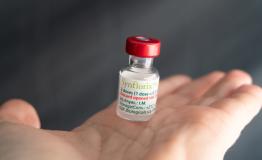

Colombia
During 2020, MSF expanded activities to meet the challenges of COVID-19 and assist communities caught up in clashes between armed groups vying for territory.
In Nariño department, our emergency response team scaled up their support to local hospitals in the port city of Tumaco, with direct care for symptomatic patients, training in infection prevention and control, the creation of staff and patient flow routes, and donations. Mobile teams were sent to work in rural communities cut off from health services by the constant presence of armed groups.
Even in the city, our teams experienced constant security threats, with shootings between rival gangs restricting our community outreach work and incursions of armed groups into a hospital interrupting our treatment of critically ill COVID-19 patients in the intensive care unit.

33,900
33,9
11,400
11,4
6,300
6,3
290
29
In the border areas of Norte de Santander, Arauca, and La Guajira, our teams continued providing general and mental healthcare to Venezuelan migrants. Our activities in La Guajira ended in August, and those in Arauca were handed over to Première Urgence Internationale as part of the MSF strategy to assist other organisations to establish their presence in conflict areas of the country.
We also closed our mental health programme in Buenaventura, Valle de Cauca, where since 2015 teams had been offering psychological support to victims of violence. The project’s innovative call centre and psychosocial activities were successfully handed over to the local health authorities.
In June, as part of our COVID-19 response, a mobile team was formed to support small hospitals in Atlántico, a coastal department that was the epicentre of the outbreak at the time. Support included training in infection prevention and control, and mental healthcare for staff.
Towards the end of the year, we carried out an emergency response to a category 5 hurricane which flattened Providencia, a small Caribbean island hundreds of kilometres off the coast. Despite huge logistical challenges, we quickly sent a team to deliver medical and mental health support to the traumatised community.
No. staff in 2020: 140 (FTE) » Expenditure in 2020: €3.7 million MSF first worked in the country: 1985
